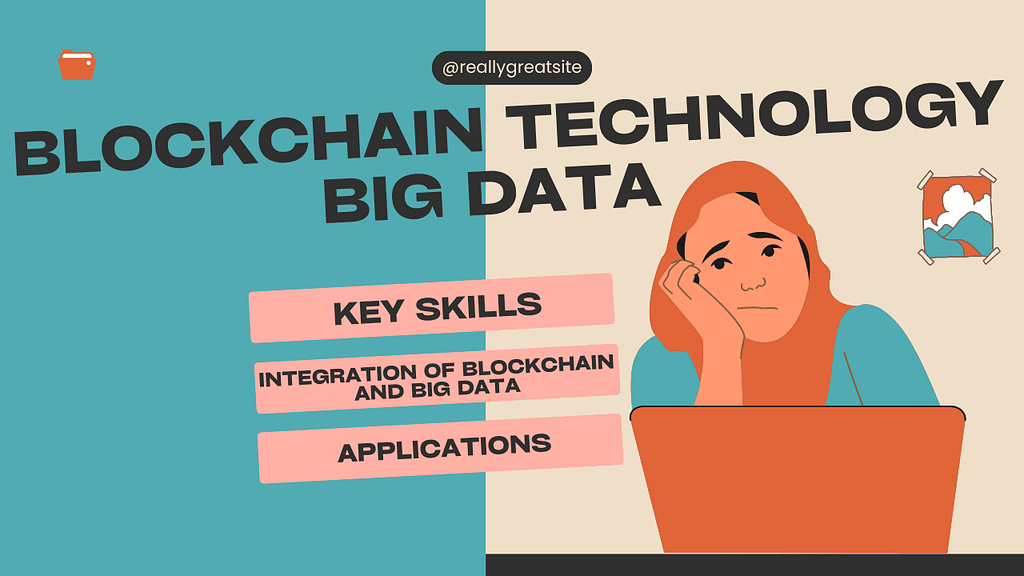Table of Contents
Introduction
In the rapidly evolving landscape of technology, Blockchain and Big Data have emerged as two of the most influential forces shaping the future of digital information. While they are distinct technologies, their integration can unlock unprecedented opportunities for industries worldwide.
Blockchain technology offers a decentralized and secure method for recording transactions, ensuring transparency and reducing the risk of fraud. On the other hand, Big Data deals with the massive volume of data generated daily, providing insights and driving decisions through advanced analytics. The combination of these technologies promises to revolutionize how we store, process, and interpret data.
The Importance of Blockchain Technology and Big Data
Both blockchain and big data are critical for several reasons:
Security and Transparency: Blockchain provides a tamper-proof ledger, making it ideal for industries where data integrity is paramount.
Data Analysis and Insights: Big data allows organizations to analyze vast amounts of information to identify trends, improve decision-making, and enhance customer experiences.
Efficiency: Blockchain streamlines processes by removing intermediaries, while big data optimizes operations through data-driven insights.
Innovation: The integration of blockchain and big data fosters innovation, enabling new applications and business models.
Key Skills Required for Careers in Blockchain and Big Data
To thrive in blockchain and big data fields, professionals need a blend of technical skills and analytical prowess:
Blockchain Skills:
Cryptography: Essential for securing transactions on the blockchain.
Smart Contracts: Proficiency in developing and deploying automated contracts, particularly on platforms like Ethereum.
Blockchain Architecture: Understanding how blockchain networks are structured and their consensus mechanisms.
Programming Languages: Knowledge of Solidity, Python, and C++ for blockchain development.
Distributed Systems: Expertise in decentralized networks and how to build dApps (decentralized applications).
Click here to learn more about the Blockchain Technology.
Big Data Skills:
Data Analysis: Proficiency in statistical methods and tools to analyze large datasets.
Machine Learning: Understanding algorithms and models that help predict trends and behaviors.
Data Visualization: Skills in presenting data insights visually using tools like Tableau, Power BI, and Matplotlib.
Big Data Technologies: Familiarity with Hadoop, Spark, and NoSQL databases.
Programming Languages: Python, R, and SQL are vital for data manipulation and analysis.
You can also read the new top 10 technologies in 2024.
Technical Information on Blockchain and Big Data
1. Blockchain Technology:
Blockchain technology is built on several key components:
Decentralized Ledger: A distributed ledger that records all transactions across a network, ensuring transparency and security.
Blocks and Chains: Data is stored in blocks, which are linked together in a chain. Each block contains a cryptographic hash of the previous block, transaction data, and a timestamp.
Consensus Mechanisms: Protocols like Proof of Work (PoW) and Proof of Stake (PoS) ensure all participants agree on the validity of transactions.
Smart Contracts: Self-executing contracts with the terms of the agreement directly written into code.
2. Big Data:
Big Data involves processing and analyzing large datasets to extract meaningful insights. The key components include:
Volume, Velocity, Variety: Big data is characterized by the massive amount of data (Volume), the speed at which it is generated (Velocity), and the different types of data (Variety).
Data Storage: Technologies like Hadoop and NoSQL databases (e.g., MongoDB) are used to store large datasets.
Data Cleaning: The process of preparing data for analysis by removing inaccuracies and inconsistencies.
Data Analysis: Applying statistical methods and machine learning algorithms to identify patterns and trends.
Data Visualization: Presenting data in visual formats to make insights accessible to stakeholders.
Integration of Blockchain and Big Data
The integration of blockchain technology and big data offers several advantages:
Data Integrity: Blockchain ensures that the data used in big data analysis is tamper-proof and reliable.
Secure Data Sharing: Blockchain enables secure and transparent data sharing across organizations, enhancing collaboration.
Enhanced Analytics: The combination of blockchain and big data provides more accurate and trustworthy insights, driving better decision-making.
Scalability: Blockchain can help manage and verify the massive amounts of data generated by big data applications.
Data Science and Big Data: Unleashing the Power of Information
Applications of Blockchain Technology and Big Data
Blockchain and big data are being applied across various industries:
Finance: Blockchain secures financial transactions, while big data analyzes market trends and customer behavior.
Healthcare: Blockchain ensures the integrity of medical records, and big data improves patient care through predictive analytics.
Supply Chain: Blockchain provides transparency and traceability, while big data optimizes logistics and inventory management.
Government: Blockchain ensures secure voting and public records, while big data enhances public services and policy-making.
FAQs.
1. What is blockchain technology?
Blockchain technology is a decentralized and secure digital ledger that records transactions across multiple computers, ensuring that the recorded transactions cannot be altered retroactively.
2. How does big data work?
Big data involves the collection, storage, and analysis of large volumes of data. It helps organizations uncover patterns, trends, and insights that drive informed decision-making.
3. Can blockchain be used in big data analytics?
Yes, blockchain can enhance big data analytics by providing a secure and transparent way to store and share data, ensuring the integrity of the data used in analysis.
4. What are the career prospects in blockchain and big data?
Careers in blockchain and big data are in high demand, with roles such as blockchain developers, data scientists, data analysts, and machine learning engineers offering lucrative opportunities.
5. What are the key differences between blockchain and big data?
Blockchain focuses on the secure and transparent recording of transactions, while big data deals with the analysis of large datasets to extract insights. The two technologies can complement each other in various applications.
